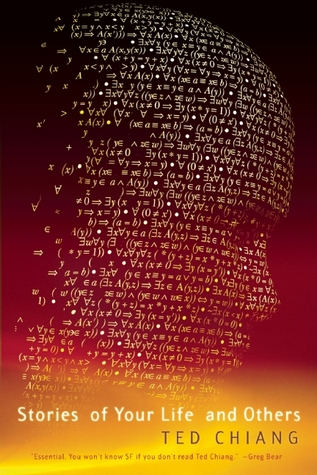It’s October and somehow I’m still not finished writing up all of the reading I did on my summer vacation (as well as what I did besides read on my summer vacation). This was a book I started and finished during my long weekend in Austin.

Author: Ted Chiang
My GoodReads rating: 4 stars
Average GoodReads rating: 4.27 stars
Language scaling: B2+
Plot summary: A short story collection including “Story of Your Life,” which was the basis for the movie Arrival
Recommended audience: Science fiction fans; anyone who enjoyed Arrival
In-depth thoughts: The problem with reviewing short story collections so long (months) after you’ve read them is that it’s harder to keep all of the stories in mind. I know that I liked what I read a lot, but I struggle to remember exactly what it was that I read — except the titular story, “Story of Your Life,” which is definitely the strongest of them all.
After a quick refresher (as in, reading someone else’s review on GoodReads), my memory came back to me. The other stories I remembered enjoying were “Hell is the Absence of God,” “Liking What You See: A Documentary,” and “Division by Zero.” Despite winning a Sideways award (whatever that is?), “Seventy-Two Letters” didn’t really appeal to me. Neither did “Tower of Babylon.” “Understand” was mildly interesting, in that it was probably the most “traditional” science fiction of the lot (what happens when people give themselves supergenius intellects?), but it didn’t have the same existentialist concerns or the same experimentation with form that characterized what I thought were the best stories. And, finally, “The Evolution of Human Science” is a clever and pithy little work and I enjoyed it in the moment I read it, but by the time I sat down to write this review I’d completely forgotten it.
“Seventy-Two Letters” and “Tower of Babylon” are steeped in Jewish lore (Kabbalah, golems) and Old Testament mythology, respectively, which might confuse readers coming from a different cultural milieu.
What I appreciate about this collection is one of the same things I appreciated about The Three-Body Problem: author commentary is included at the end. It’s interesting to take a peak behind the curtain and see the germ of an idea for a story (if I can mix my metaphors a little). Chiang has yet to produce a novel-length work, but I think many of the ideas in here have enough meat to become novels on their own. I look forward to any future work from Chiang, and I hope he tackles more long-form work in the future.

One thought on “Review: Stories of Your Life and Others”